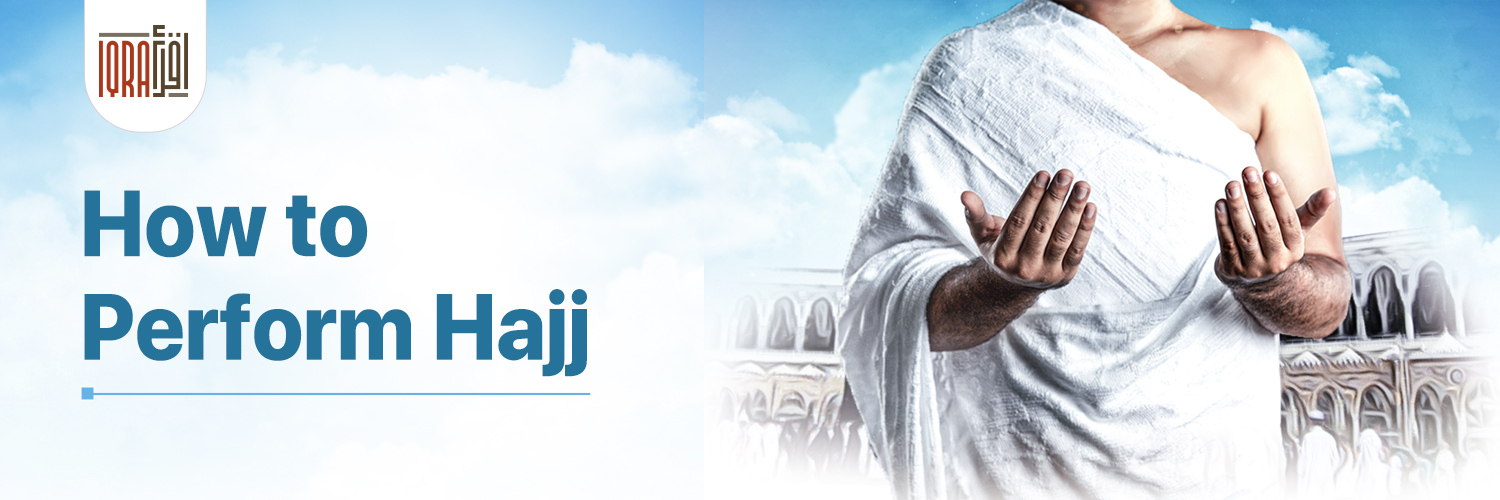Hajj Rites Broken Down in Easy Steps
Do you need help with what pilgrims do during Hajj? Are you afraid to go for Hajj because you aren’t sure what to do?
While there is always a lot to learn, performing Hajj is easier thank you think. Keep reading as we will give you an overview of how to do Hajj. With this knowledge of the rites of Hajj, you might feel motivated to go if you haven’t already. Or you’ve got plans to go; we hope this might lessen any anxiety you might be feeling.
Please refer to our Hajj Explained Glossary for an easier understanding of the rituals of Hajj.
Types of Hajj
There are three different types of Hajj. Based on your circumstances, you can determine which best suits your needs.
Hajj Tammtu’
Tammtu’ is the most common type of Hajj; as the name indicates, it is “enjoyment.” This means that the conditions of Ihram do not bind the pilgrim when they are in Makkah before Hajj. The pilgrim can wear their Ihram for Umrah, then remove it once completed, including cutting their hair. When Hajj begins, they can wear it again and make the intention for Hajj.
1.Hajj Ifrad
This Hajj is when the pilgrims wear Ihram only for Hajj. When they reach Makkah, they perform Tawaf and Sa’ee but do not remove or cut their hair. They remain in Ihram; thus, the conditions of the Ihram are on them until Hajj begins. This option suits people that arrive right before Hajj begins.
2. Hajj Qiran
Hajj Qiran is when the pilgrim wears their Ihram with the intention of both Umrah and Hajj. The person performing this Hajj can only remove their Ihram after completing it. Sacrificing an animal is required.
How to do Hajj (Tammatu’)
For Tammatu’ Hajj, one must have already performed Umrah before Hajj begins.
Hajj starts on the 8th of Dhul Hijjah(To Mina)
STEP 1: Begin by grooming and bathing by doing ghusl (or at least wudu).
STEP 2: Put on your Ihram clothes and make your intention for Hajj. After that, recite the Talbiya.
STEP 3: Make your way to Mina (in the morning) while reciting the Talbiya.
STEP 4: Spend the day reciting Quran, supplicating to Allah, reciting the praises of Allah, reading beneficial books, and helping others around you.
In Mina, you will pray Dhur, Asr, Maghrib, Isha, and Fajr (shortening each prayer to two units each)
The 9th of Dhul Hijjah(From Mina -> To Arafat -> To Muzdalifah)
STEP 1: Pray Fajr in Mina
It is obligatory to recite Takbeer al Tashreeq after this salat up to (including) Asr salat on the 13th of Dhul Hijjah.
اللَّهُ أَكْبَرُ اللَّهُ أَكْبَرُ لَا إلَهَ إلَّا اللَّهُ وَاَللَّهُ أَكْبَرُ اللَّهُ أَكْبَرُ وَلِلَّهِ الْحَمْد
Allahu Akbar, Allahu Akbar, La Ilaha Ilallahu Wallahu Akbar, Allahu Akbar, Wa Lillahil Hamd.
Allah is the greatest, Allah is the greatest. There is no deity besides Allah, and Allah is the greatest. Allah is the greatest, and all praises are for Allah only.
STEP 2: Make your way to Arafat reciting the Talbiya, Takbeer (Allahu Akbar), or Tahlil (La illaha illallah)
Abdur-Rahman bin Yamur narrates: “I saw the Messenger of Allah when people came to him and asked him about Hajj. The Messenger of Allah said: ‘Hajj is Arafat. Whoever catches up with the night of Arafat before dawn comes on the night of Jam’ (Al-Muzdalifah), his Hajj is complete.'” Sunan an-Nasa’i 3016
Prayer and Supplication
STEP 3: Combine Dhur and Asr salat (two units each).
STEP 4: Spend your time supplicating to Allah as much as possible. And recite:
لَا إِلَهَ إِلَّا اللَّهُ وَحْدَهُ لَا شَرِيكَ لَهُ لَهُ الْمُلْكُ وَلَهُ الْحَمْدُ وَهُوَ عَلَى كُلِّ شَيْء قدير
There is no god but God alone who has no partner; to Him belongs the dominion, to Him praise is due, and He is omnipotent.
‘Amr b. Shu’aib, on his father’s authority, quoted his grandfather as saying that the Prophet said, “The best supplication is that on the day of ‘Arafa, and the best thing which I and the prophets before me have said is, ‘There is no god but God alone who has no partner; to Him belongs the dominion, to Him praise is due, and He is omnipotent.’ Tirmidhi,
STEP 5: At sunset, you will go to Muzdalifah and pray Maghrib, Isha, and Fajr. It is necessary to combine Maghrib and Isha.
STEP 6: In Muzdalifah, you will sleep the night there (outside). Keep supplicating to Allah and make dhikr. Collect seven pebbles for the next day (collect a few extra in case you drop them). You could collect all of them for the 11th and 12th, approximately 50 pebbles the size of a chickpea.
The 10th of Dhul Hijjah(From Muzdalifah -> To Mina -> Jamarat in Mina -> Makkah)
STEP 1: Begin with praying Fajr in Muzdalifah and stand to make dua before sunrise (this is called Wuquf).
STEP 2: Then, it’s time to leave and go back to Mina.
STEP 3: Proceed to Jamarat Al Aqaba (the biggest one), reciting “Allahu Akbar” (Allah is the Greatest) as you throw seven pebbles at it (one at a time).
STEP 4: At this step you have a choice; either go to Mina or the hotel. Then, wait for word that your sacrifice has been completed.
STEP 5: When your sacrifice is complete, you will trim/shave your hair, shower and remove your Ihram.
STEP 6: You will then go to the Kabah and perform Tawaf, read two Rakat, and do Sa’e (Tawaf al Ziyarah or Tawaf Al Ifada). You have until the 12th of Dhul Hijjah to complete this.
STEP 7: Return to Mina for the night.
The 11th and 12th of Dhul Hijjah (Mina – All three Jamarat)
Stone all three Jamarat in the afternoon. Starting with the first or smallest Jamarat (furthest from Jamarat Al Aqba), you will pelt it with seven pebbles, one at a time, while saying Allahu Akbar (Allah is the Greatest).
You will spend two nights here, stoning the Jamarat as you did on the 11th of Dhul HIjjah. Then you will return to your hotel, having fulfilled all Hajj rituals.
When You Leave Makkah
You will perform Tawaf Al Wadaa (Farewell Tawaf), but no Sa’e. Praying two Rakat after completing your Tawaf is better, but it is not obligatory.
Learning how to perform Hajj should not be a task that scares you from completing your Hajj. As you get more comfortable with each ritual, you can form a ‘mind map’ of what to do. Of course, it is best to revise day by day so you are mentally, physically, and spiritually prepared.
May Allah accept the Hajj of all who intend to perform it and make a way for those who wish to go, Ameen.





0 Comments
Oops comments are disabled